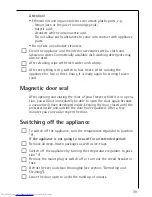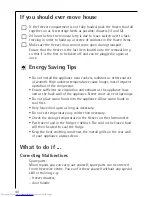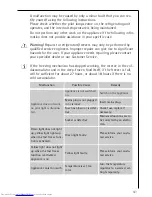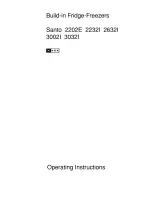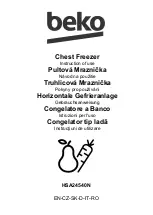
themselves in the freezer when playing (there is risk of suffocation!)
or get themselves into other dangerous situations.
• Often children cannot recognise the hazards present in household
appliances. It is therefore important that you ensure adequate
supervision and never let children play with the appliance!
Daily Operation
• Containers with flammable gases or liquids can leak at low
temperatures. There is a risk of an explosion! Do not store any contai
ners with flammable materials such as, for example, spray cans, fire
extinguisher refill cartridges etc in the refrigerator/freezer.
• Bottles and cans must not be placed in the freezer. They can burst
when the contents freeze, high carbonate content drinks can even
explode! Never store lemonade, juices, beer, wine, sparkling wine etc.
in the freezer. Exception: high alcohol content spirits can be stored in
the freezer.
• Do not put ice creams or ice cubes in the mouth immediately after
removal from the freezer. Very cold ice can freeze to the lips or ton
gue and cause injury.
• Do not touch frozen food with wet hands. Your hands could freeze to
the food.
• Do not operate any electrical appliances in the freezer (e.g. electric
ice cream makers, mixers etc.).
• Before cleaning the appliance, always switch off the appliance and
unplug it, or pull the house fuse or switch off the circuit breaker.
• When unplugging always pull the plug from the mains socket, do not
pull on the cable.
In case of malfunction
• If the a malfunction occurs on the appliance, please look first in the
"What to do if ..." section of these instructions. If the information
given there does not help, please do not perform any further repairs
yourself.
• Refrigerators/freezers may only be repaired by qualified service
engineers. Improper repairs can give rise to significant hazards. If
your appliance needs repairing, please contact your specialist dealer
or our Customer Service.
27

















